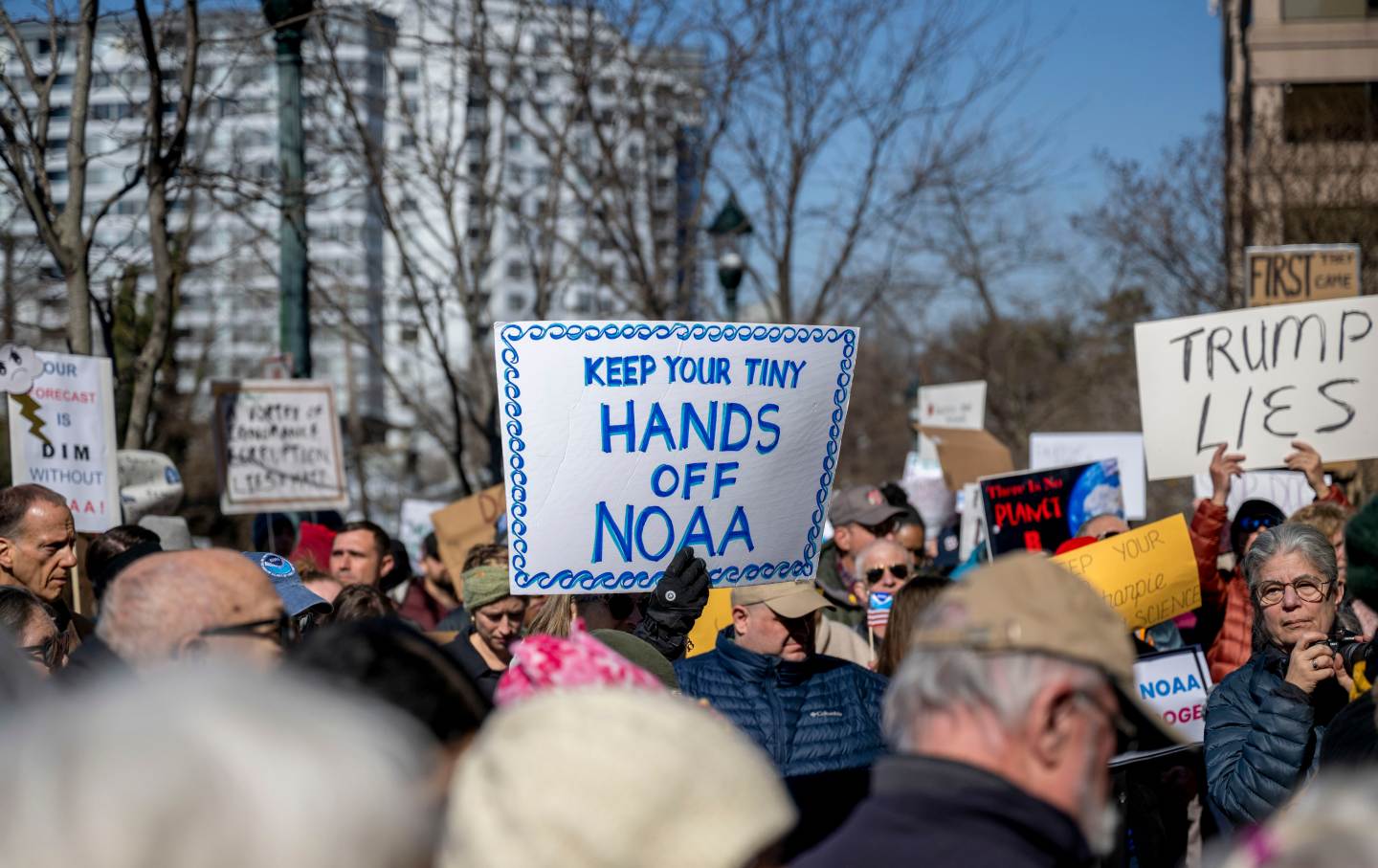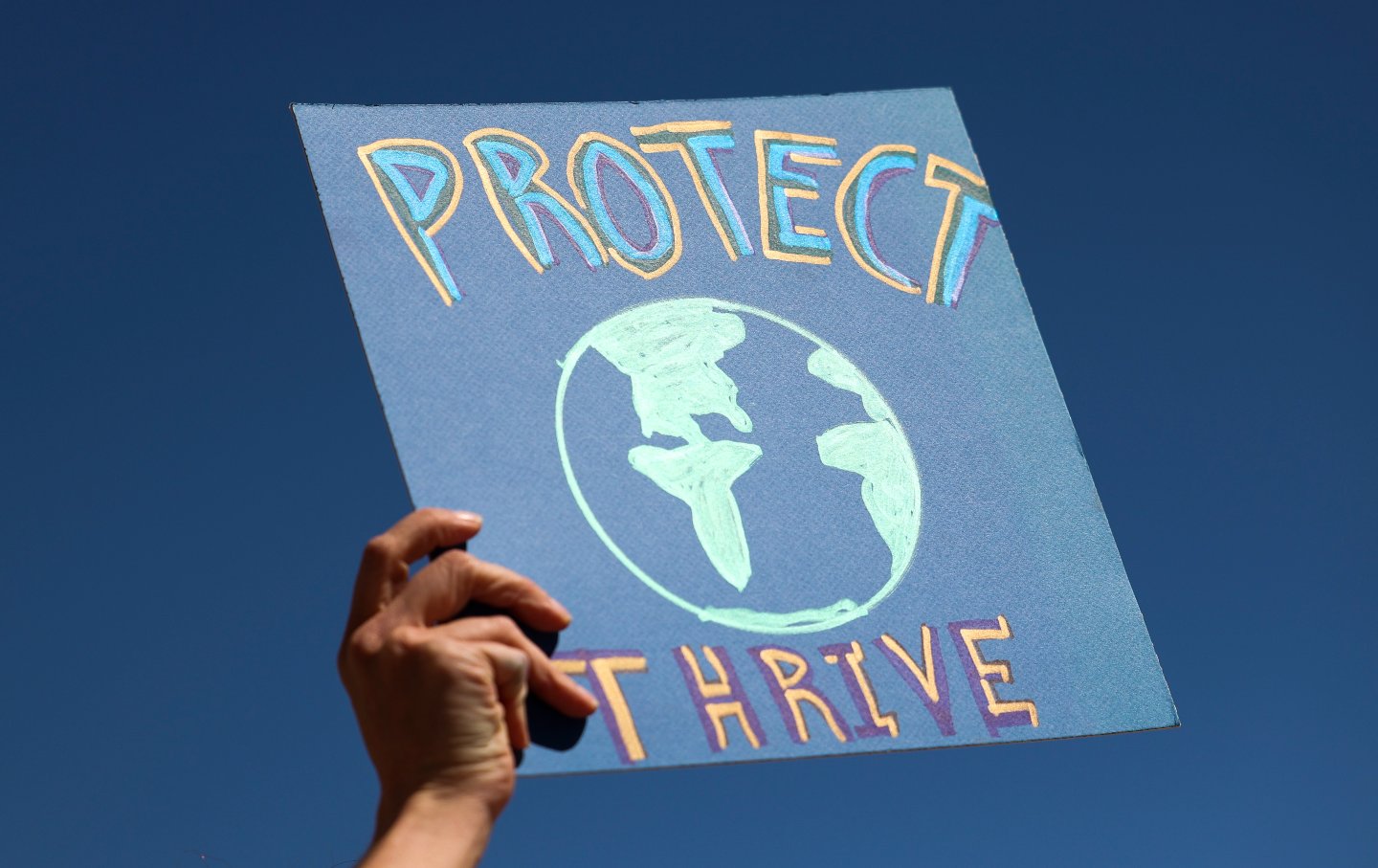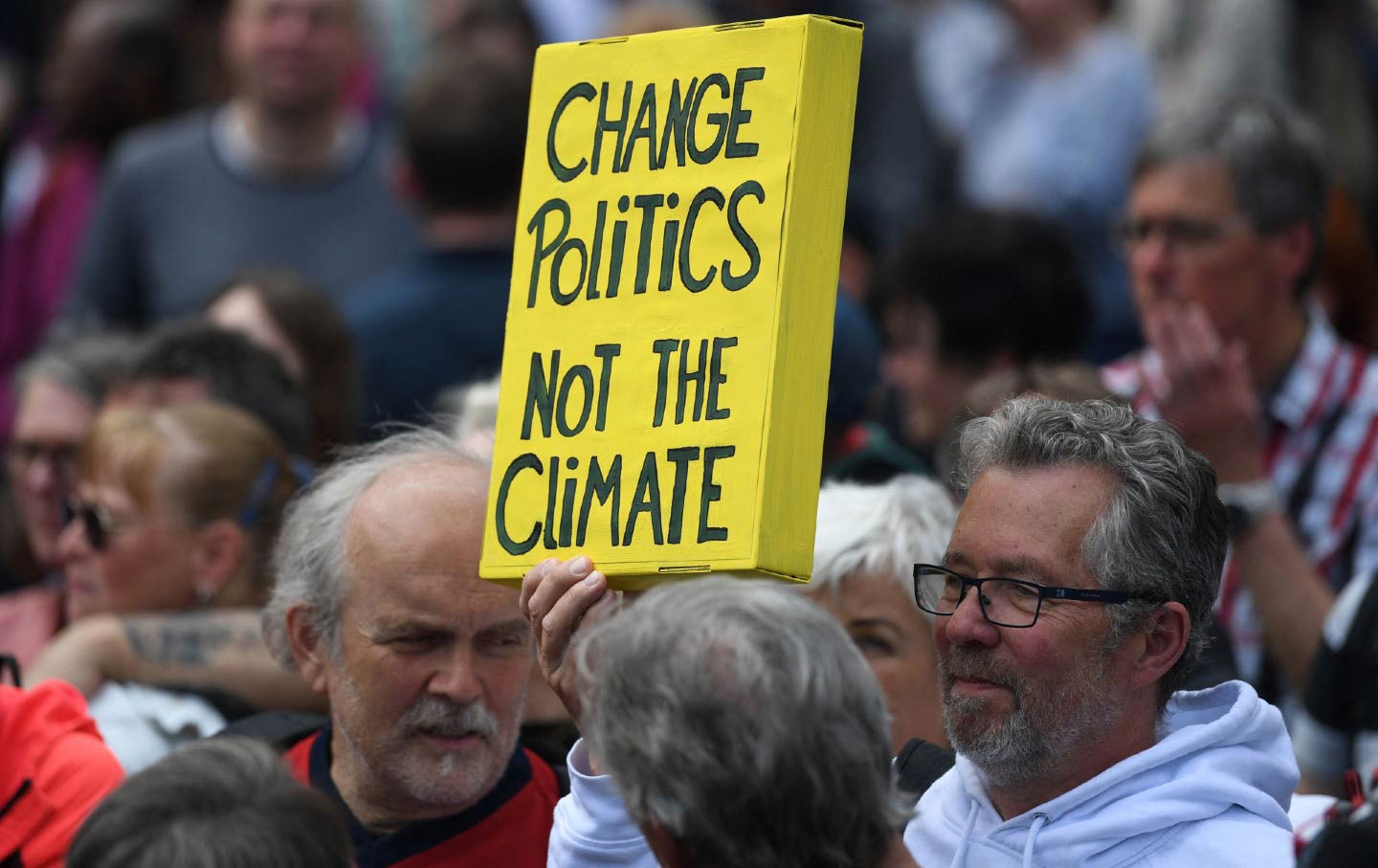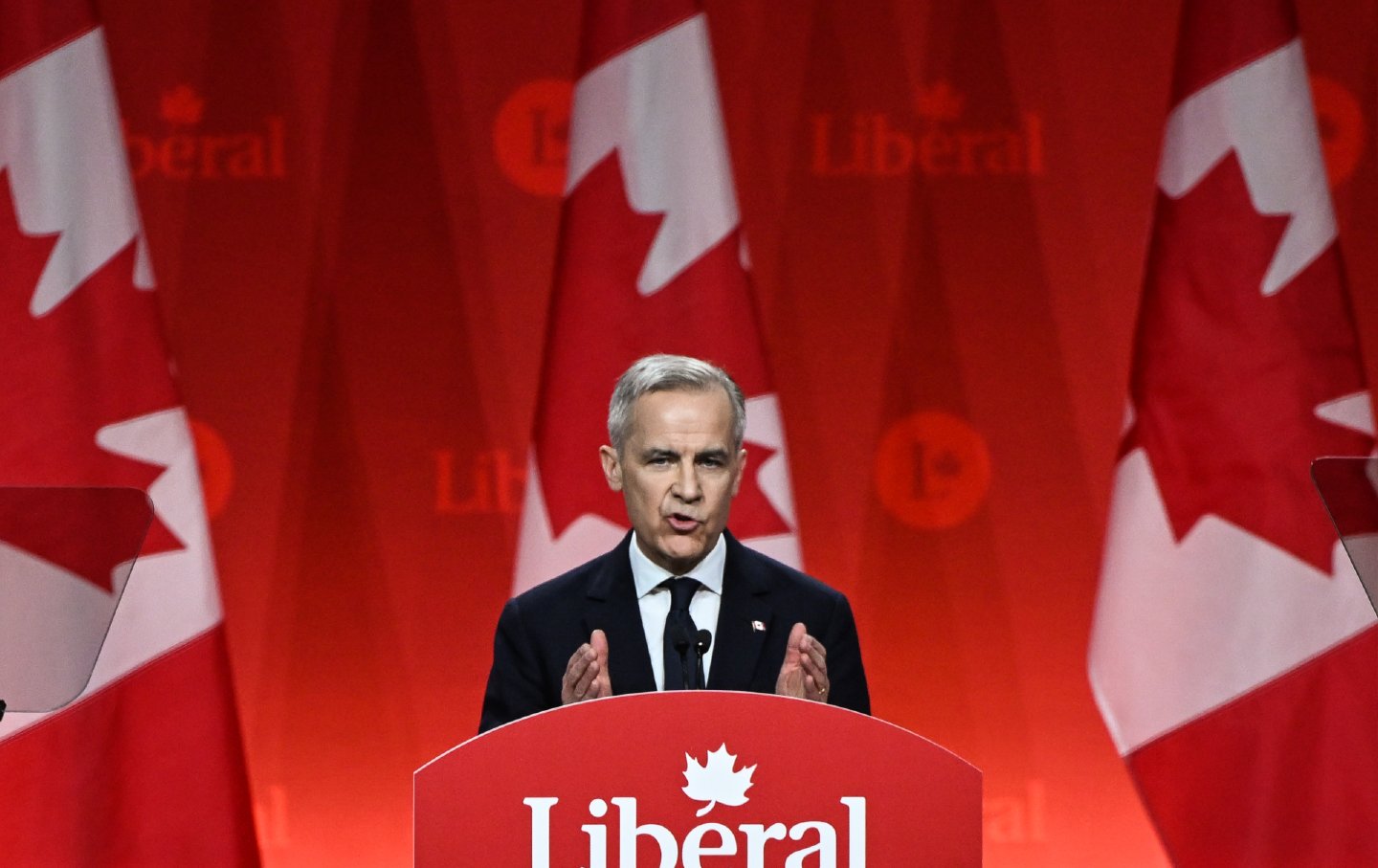Trump’s Deadly Assault on Weather Reporting
I’m a meteorologist, and breaking NOAA would undermine journalists’ ability to cover the story our audiences care about most.

Protesters rally outside the National Oceanic and Atmospheric Administration headquarters in Silver Spring, Maryland, on Monday, March 3, 2025.
(Daniel Heuer / Bloomberg via Getty Images)
“There will be people who die.” That stark warning came last week from Daniel Swain, a climate scientist at the University of California, Los Angeles, after President Donald Trump sought to fire more than 800 employees of the National Oceanic and Atmospheric Administration (NOAA). As a former TV weathercaster myself, I know the same worry is shared throughout the professional meteorological community.
NOAA houses the National Weather Service, which provides the data and analysis that informs virtually all the weather forecasts Americans receive, whether via TV or radio broadcasts or their phone apps. Emergency alerts to coastal residents as a hurricane approaches? Warnings to farmers about an impending flood or heat wave? A winter weather advisory for mountain-bound ski vacationers? These and countless other lifesaving services are at risk if Trump succeeds with his order, which legal experts say violates US law, according to reporting by Inside Climate News.
“Going into the severe weather and hurricane season, this cannot be good,” Al Roker, the chief meteorologist for NBC News, wrote in a social media post responding to the NOAA layoffs.
The public deserves to know what’s at stake. To aid coverage of this developing story, it’s worth noting that NOAA is one of the best investments of taxpayer dollars on record. The National Weather Service’s annual budget of roughly $1.4 billion delivers an economic return in excess of $100 billion, according to one recent study. That’s not surprising, considering how directly the weather affects so much of the economy, including agriculture, air transportation, fishing, tourism, utilities, and commerce. To highlight this angle, reporters can explore the potential losses that companies, universities, and nonprofits may experience with further disruptions to the NOAA workforce. Think of airlines unable to steer their planes safely away from storms and farmers left unaware of an upcoming frost that threatens their entire season’s harvest.
Reporting can also point out that providing critical weather and climate information is just one part of NOAA’s work. Eat seafood? NOAA ensures that fish and shellfish from across the world are safe to consume. Enjoy a beach day? NOAA protects you from a number of marine impacts, including tsunamis (recent cuts included one scientist from this team). NOAA’s reach even extends beyond our planet, monitoring solar activity and “space weather” that disrupts global communications.
As climate change drives increasingly volatile and destructive extreme weather across the US and around the world, a reliable understanding of the climate-weather connection is critical to saving lives and ensuring that society can continue to function. Plainspoken journalism can make clear the consequences if this attempt to sabotage NOAA succeeds: People will die.
Hold the powerful to account by supporting The Nation
The chaos and cruelty of the Trump administration reaches new lows each week.
Trump’s catastrophic “Liberation Day” has wreaked havoc on the world economy and set up yet another constitutional crisis at home. Plainclothes officers continue to abduct university students off the streets. So-called “enemy aliens” are flown abroad to a mega prison against the orders of the courts. And Signalgate promises to be the first of many incompetence scandals that expose the brutal violence at the core of the American empire.
At a time when elite universities, powerful law firms, and influential media outlets are capitulating to Trump’s intimidation, The Nation is more determined than ever before to hold the powerful to account.
In just the last month, we’ve published reporting on how Trump outsources his mass deportation agenda to other countries, exposed the administration’s appeal to obscure laws to carry out its repressive agenda, and amplified the voices of brave student activists targeted by universities.
We also continue to tell the stories of those who fight back against Trump and Musk, whether on the streets in growing protest movements, in town halls across the country, or in critical state elections—like Wisconsin’s recent state Supreme Court race—that provide a model for resisting Trumpism and prove that Musk can’t buy our democracy.
This is the journalism that matters in 2025. But we can’t do this without you. As a reader-supported publication, we rely on the support of generous donors. Please, help make our essential independent journalism possible with a donation today.
In solidarity,
The Editors
The Nation








